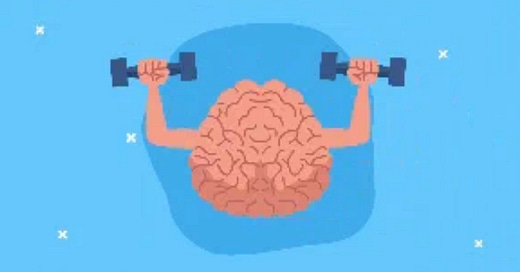It’s OCD awareness week, which is a week-long public health and wellness campaign facilitated by the International OCD Foundation; that in their words, “serves to dispel myths about obsessive compulsive disorder, break the stigma around mental illness, and provide education about the disorder and how to support those affected.”
The idea of “OCD awareness” is somewhat of an oxymoron. Those of us who experience OCD find it hard to remove ourselves from the omnipresent menace of intrusive thoughts. This can (especially in moderate to severe cases) be detrimental to our quality of life. In my case, it stifles my daily routine and impairs my ability to take on simple tasks. It’s a vicious cycle of anxiety, unbridled compulsion and fear that bombards and overwhelms me from the time I wake up to the moment I fall asleep. I’ve experienced OCD on a consistent basis since I was at least six years old. So I’ve had a lifetime of OCD awareness.
I’ve written quite a bit about how OCD affects my life (see: “I’m so OCD” and “Premeditatio Malorum”), and how I’ve been trying to manage my symptoms, and liberate myself from its clutches so that I can improve the quality of my life. I’ve also frequently described how a steady diet of exercise has helped in some regard (see: “OCD and Exercise”), and how I’ve responded to OCD via a combination of fitness and artistic practices (see: “Fragments, Ruins and Ruminations”).
It’s been hard navigating in an ableist world with OCD, but it’s a part of my identity (for better or worse); and I’m going to use my voice and platform to end the misinformation and stigma around it!
In addition to my own musings on OCD, I’ve sought out words and wisdom from others. It’s not a monolithic disorder, so everyone experiencing OCD is likely to have both similar and disparate ways in which it impacts their lives. Michael Alcee (
) contextualizes living with OCD in such a profound manner. His writing inspires my writing about OCD.The perspective that Michael has regarding living with OCD is refreshing, because it is the polar opposite of mine. Or at least it was, until I started analyzing his words and applying them to my own situation. It’s the points he makes about the “hidden powers of the OCD mind,” that has prompted me to contextualize my OCD as less of an adversary and more of an aide to help me achieve and practice good self-improvement routines.
I couldn’t agree more with Michael when he writes, “It’s not easy living with such sensitivity and an accompanying wild imagination. But it’s quite possible to do it without viewing these qualities as the enemy or as just the illness of OCD itself.”
As I mentioned in “Grease the Groove,” OCD is not my enemy; it’s my call to greatness. I am slowly, but steadily shifting my understanding about living with OCD. I am doing this by combining skills and insights that I’ve learned from my artistic and fitness journeys. One of the most important things I’ve learned from art and exercise is that being vulnerable and experiencing failure are actually keys to success. Through inspiration and perspiration, I am building a repertoire that embraces and confronts OCD with strength, resiliency and creativity. My more nuanced approach to my physical and mental health has made me even more aware of OCD, but in a newfound and promising manner. Through the lens of an artist and fitness trainer, I am harnessing it as raw material for creative and corporeal pursuits.
Thanks for reading Artfully Exercising!
Show me some ❤️
I’d be grateful if you’d take a moment to hit the “heart icon” on this post to show your appreciation (and boost this post within the algorithmic sea that is social media).
Consider subscribing 📩
Artfully Exercising is a reader-supported publication about art and fitness. To receive new posts and support my work, consider becoming a free or paid subscriber:
Documenting my physical and mental health journey in the form of Artfully Exercising has been a labor of love, which takes a lot of (well spent) time, energy and resources to write the content you receive in your email boxes. If my writing has given you any sort of inspiration and enrichment, please consider making a contribution by becoming a paid subscriber or making a one time contribution.
If you are not ready to become a paid subscriber, you can support my work with a one pledge at a monetary value of your choice:
Let’s continue the conversation 💬
If what I’ve written resonates with you, and/or you want to share your thoughts, please leave me a comment! One of the most rewarding things about writing is getting feedback and making connections with others!





Good stuff brother. It could be argued that we all fall into a variety of spectrums. How we function with and respond to our individual disordered thinking or true diagnosable disorders can have a profound impact. Cool to see you using yours to your advantage
Could you say that your struggle with OCD and life in general is your origin story? I always thought that an extremely driven superhero like Bruce Wayne must have some neurodiversity to allow him to focus so hard on training to crush his enemies.
I can see you training in your lair, waiting for the opportunity to spring forth!